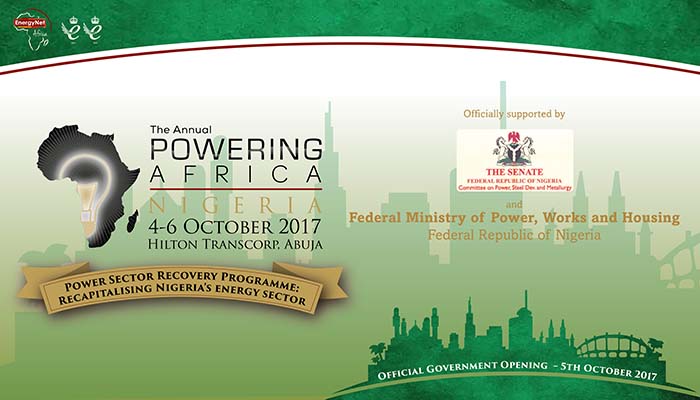This October will see the 6th Powering Africa: Nigeria investors summit take place in Abuja, where your commercial objectives are put at the heart of the agenda.
We will also analyze the progress Nigeria’s power sector has achieved in the last 12 months. We warmly invite you to join us in October and would like you to let us know how your business has developed in the last year.
We will be delighted for you to share your story with other participants too.
Also Read; Construction of US$ 1.3m hydro power plant in Nigeria halfway complete
Nigeria’s electricity sector has transformed in the last 12 months with the break down in the barriers to investment in the country’s energy sector.
Following President Buhari’s lead to tackle bottlenecks and inefficiencies the Ministry of Power, Works and Housing has embarked on a strategy to get the distribution companies working, providing support and regular interactions with the privately held companies that have worked tirelessly to build the electricity backbone of Nigeria.
It has been proven that IPPs are possible with multilateral, international and local banks uniting to deliver what could be perceived as some of the most exciting projects on the continent, though it is clear that now is not the time for celebration.
Now is the time for action and to focus on the next phases such as gas infrastructure, diversifying the energy mix, renewables, energy tariffs, micro grids and off the grid energy, as well as the clear need for billions of dollars of investment in the transmission and distribution networks.
Nigeria’s Economy Leading the Way in Africa
Nigeria is currently positioned as the largest economy in Africa and is poised to become the largest market in Africa for IPP projects. As the country aims to increase total installed capacity to 20,000MW by 2020 and with the unbundling of the oil and gas sector, and privatization of the power sector underway, new generation capacity is going to rely solely on private sector investment.
Government, public sector institutions, investors and power producers all come together to set a new precedent for African power driven by commercial capital and a commitment to the economic value of power generation.

Leave a Reply